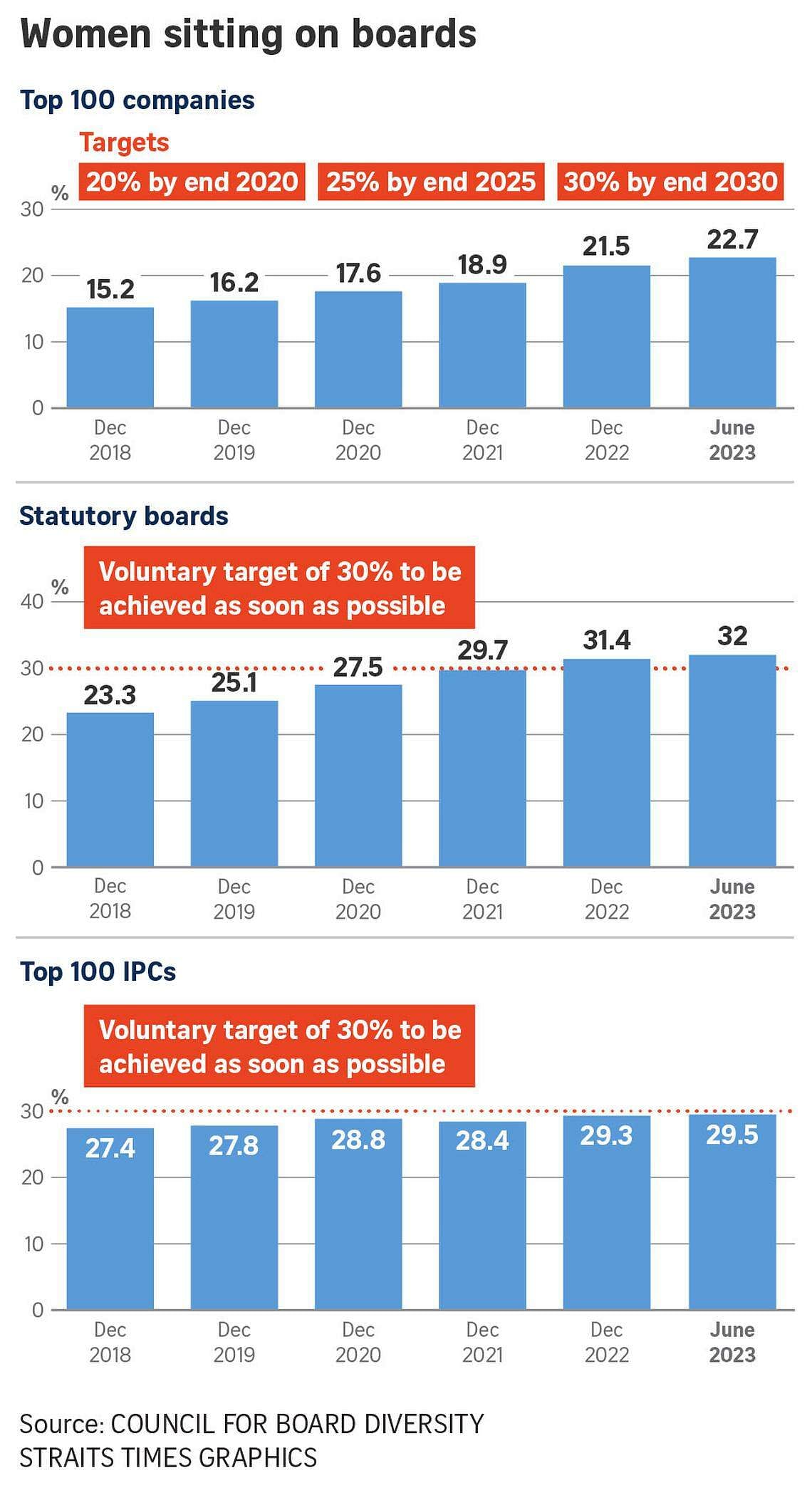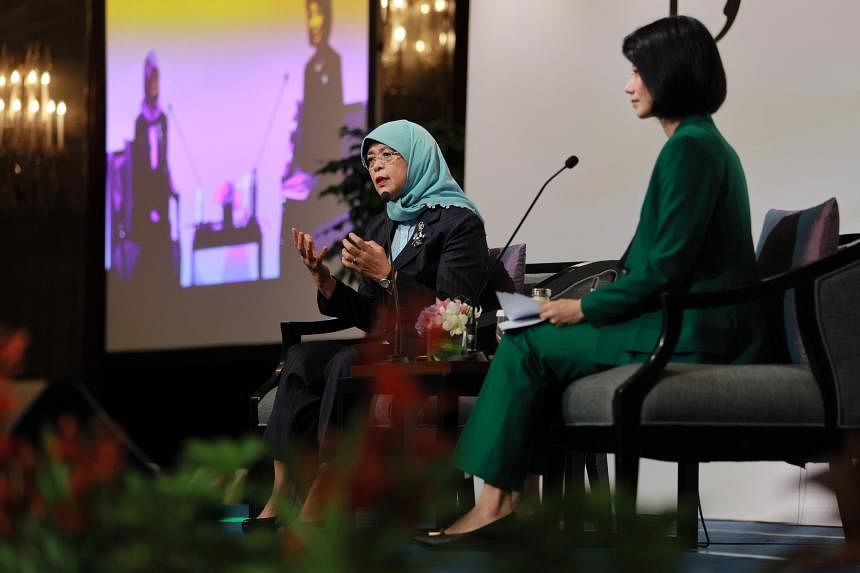SINGAPORE – The number of women sitting on the boards of listed companies, statutory boards and institutions of public character (IPCs) has risen, but representation in Singapore’s top 100 listed companies continues to lag behind.
Women’s participation on boards of the top 100 listed companies rose to 22.7 per cent as at June 2023, from 15.2 per cent as at December 2018, mid-year data from the Council for Board Diversity showed.
While the proportion is heading towards the voluntary target of 25 per cent by 2025, 13 of the 100 primary-listed companies continue to be led by all-male boards.
In the public sector, the proportion of women having a board seat at statutory boards in Singapore hit 32 per cent in June 2023. Statutory boards were the first of the three sectors to hit their voluntary target of 30 per cent in 2022.
The third sector – the 100 largest IPCs here – continues to be just under its target of 30 per cent, with 29.5 per cent of board seats held by women.
The council said regulatory guidance in the revised Code of Governance for Charities and IPCs, which takes effect from the financial year beginning on or after Jan 1, 2024, is expected to drive succession planning and board diversity consideration.
President Halimah Yacob has called on companies and charities to draw on board diversity to navigate uncertain and complex times.
She added that a company could otherwise miss out on harnessing talent as a competitive edge, and a non-profit risks losing its connection to the communities it serves.
“Women’s participation on boards is also a barometer of the extent our society values the contributions of women and whether these contributions are viewed as being equal to those by men,” said Madam Halimah, who is the council’s patron.
She made the point during a 30-minute chat with Ms Sun Xueling, Minister of State for Social and Family Development and Home Affairs, at the council’s fifth anniversary event and forum held at Shangri-La Singapore on Thursday.
In terms of breadth, statutory boards have the highest female representation on boards among the three sectors. Almost 60 per cent of statutory boards have achieved women’s participation on boards of at least 30 per cent or more.
For the top 100 IPCs, it is 52 per cent, while it is 28 per cent for the top 100 companies.
When it comes to boards chaired by women, it is 20 per cent for statutory boards, 18 per cent for the top 100 IPCs and 9 per cent for the top 100 companies.
The proportion of women in board leadership roles among the top 100 companies rose to 23 per cent in June, up from 14 per cent in December 2018.

Singapore’s 22.7 per cent for women’s participation on boards of the top 100 listed companies is behind comparative figures in countries such as Norway, where it is 43.1 per cent.
Some countries without quotas or minimum requirements in listing rules – like Singapore – are doing better. New Zealand has a women’s participation rate of 36.5 per cent and the US is at 33.3 per cent.
Speaking at Thursday’s event, Mr Loh Boon Chye, the council’s co-chair and chief executive of the Singapore Exchange (SGX) Group, said that gender, as the most visible form of diversity, offers a powerful and accessible lead-in to conversations on broader diversity.
“Boards with diverse competencies and backgrounds that suit the ambition and development of the organisation provide themselves an edge when addressing a range of issues,” he said.
Mrs Mildred Tan, the council’s co-chair and the chairman of Tote Board Singapore, said the findings showed that there is more widespread recognition of the benefits of board diversity, and efforts can now go beyond advocating a rise in women board directors to their taking on leadership roles within boards.
“At present, only 9 per cent of boards at top 100 companies are chaired by women, and women sit on less than a quarter of all audit, nominating and remuneration committees.
“There is plenty of anecdotal evidence that boards with women in leadership positions are more likely to harness diversity as a business imperative,” she said.
The event, which is the council’s new outreach programme to encourage Singapore’s board diversity, was attended by 160 board chairpersons and women board directors representing top 100 companies on the SGX, statutory boards and the nation’s 100 largest IPCs.
The 17 members of the council, formed in 2019, comprise corporate leaders and professionals in the private and public sectors who are appointed by the minister for social and family development.


